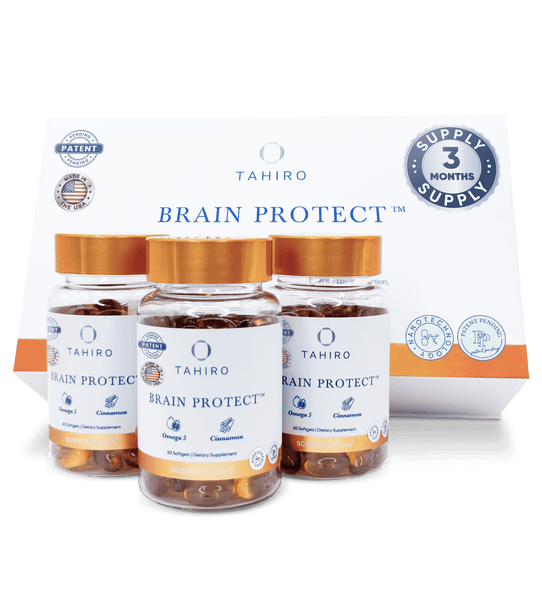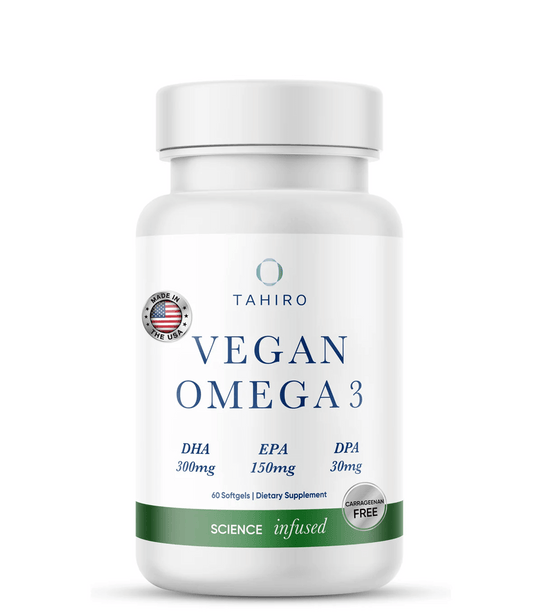Cinnamon has long been known for its aromatic flavor and its use in baking and cooking.
But did you know that it also has a host of potential health benefits, including enhancing brain function? Recent research has shed light on the ways in which cinnamon may support cognitive health, including improving memory, attention, and overall brain performance.
One of the key components of cinnamon is a compound called cinnamaldehyde, which has been shown to have anti-inflammatory properties and may help to protect against cognitive decline. Studies have also suggested that cinnamon can increase blood flow to the brain, which can enhance brain function and may also help prevent age-related cognitive decline.
In this article, we'll explore the latest research on cinnamon and its potential effects on brain function, as well as practical ways to incorporate this spice into your daily routine. So grab a cup of cinnamon-spiced tea and let's dive in!
The Powerful Components of Cinnamon that Support Brain Health
Cinnamon contains several compounds that may have beneficial effects on brain function. Here are some of the key components of cinnamon that may help to support cognitive health [1]:
-
Cinnamaldehyde: A compound that gives cinnamon its distinctive flavor and aroma, and which has been shown to have anti-inflammatory properties.
-
Epicatechin: A flavonoid that may improve cognitive function and protect against age-related decline.
-
Eugenol: A compound that has been shown to have antioxidant and anti-inflammatory properties, and may help to protect against neurological damage.
-
Cinnamic acid: A phytochemical that may improve cognitive function and protect against brain damage.
-
Proanthocyanidins: A type of flavonoid that has been shown to improve memory and cognitive function.
-
Methyl eugenol: A compound that has been shown to have antioxidant and anti-inflammatory properties, and may protect against cognitive decline.
-
Polyphenols: A group of compounds that have been shown to protect against damage to brain cells and may improve cognitive function.
What is The Link Between Cinnamon and Brain Function Enhancement
It has been found that cinnamon contains bioactive compounds that have been found to improve cognitive performance and support brain health. One of the key compounds in cinnamon, cinnamaldehyde, has been shown to stimulate the expression of neuroprotective proteins and enhance brain function in animal studies. Human studies have suggested that consuming cinnamon extract may improve cognitive function and memory, and may even reduce symptoms of anxiety and depression [2].
Human Studies on cinnamon Consumption & Brain Function
If you're curious about how cinnamon can benefit your brain, you'll be happy to know that there have been multiple research studies looking into this topic. Several studies have found that supplementation with cinnamon or its components improved memory, learning, and attention in healthy adults [3]. Another systematic review and meta-analysis found that cinnamon use improved blood sugar control in individuals with type 2 diabetes, which may have implications for cognitive function in this population [4]. These findings suggest that cinnamon may have potential as a natural treatment for cognitive decline and other neurological conditions.
Cinnamon's Impact and Potential Benefits for Brain and body Diseases
Cinnamon has been shown to have various potential health benefits, including:
-
Heart disease: Cinnamon may help reduce risk factors associated with heart disease, such as high blood pressure, high cholesterol, and high blood sugar [5]
-
Cancer: Cinnamon has been found to exhibit anti-cancer properties in laboratory studies, particularly in relation to colorectal and cervical cancer [6]
-
HIV infection: Cinnamon has been found to inhibit the replication of HIV, the virus that causes AIDS, in laboratory studies [7]
-
Tooth decay: Cinnamon has been found to possess antimicrobial properties that may help to prevent tooth decay and gum disease [8]
-
Allergies: Cinnamon may have anti-inflammatory properties that could help to alleviate allergy symptoms [9]
-
Parkinson’s Diseases: The use of cinnamon can reverse the changes in the brains of mice with Parkinson's disease (PD) on a biomechanical, cellular, and anatomical level [10]
Exploring the Potential of Cinnamon Components for Age-Related Concerns
Cinnamon has been shown to have potential in addressing age-related concerns, such as cognitive decline. Compounds in cinnamon act as antioxidants, which may help to protect the brain from oxidative stress and reduce inflammation. These are known to be key factors in cognitive decline [11]. Additionally, cinnamon may help to improve glucose metabolism and insulin sensitivity, which can help prevent age-related diseases such as diabetes and cardiovascular disease [12]. Both of these conditions can have a significant impact on brain function, as well as impacting other organs throughout the body.
Cinnamon’s Neuroprotective Properties for Learning Enhancement
Cinnamon has also been found to have neuroprotective properties, meaning that it can help to protect cells in the brain from damage. This may help to explain how cinnamon can enhance learning and memory. One study showed that cinnamon improved cognitive function in people with Parkinson's disease, possibly due to its ability to protect neurons from damage [14]. Another study, which was conducted on rats, found that cinnamon extract improved spatial learning and memory by increasing the levels of certain proteins in the hippocampus, which is the part of the brain responsible for memory formation and retrieval [13]. These findings suggest that cinnamon may have potential as a natural therapy for improving cognitive function and protecting against neurological diseases.
Precautions and Risks when Using Cinnamon
While cinnamon has many potential health benefits, there are also some precautions and risks to consider when using it. Some people may be allergic to cinnamon, which could lead to symptoms such as skin itching and irritation, swelling, and even difficulty breathing.
Cinnamon also contains compounds that may affect the liver’s ability to process certain medications, which could lead to drug toxicity [15]. Coumarin, a compound found in cinnamon, has the potential to cause liver toxicity in large doses, particularly in people who are already taking other medications or who have medical conditions that affect liver function [16]. Therefore, it is recommended to consume cinnamon in moderation and purchase products from reputable sources. If you’re taking any medications, check with your doctor before you start taking cinnamon supplements or eating large doses of cinnamon. (The amounts of cinnamon usually found in foods are low enough to be safe.)
When is the Best Time to Consume Cinnamon?
The best time to consume cinnamon may depend on individual preferences and health goals. Some people prefer to consume cinnamon in the morning to help regulate blood sugar levels and boost brain function throughout the day. Others may prefer to consume it in the evening to aid in digestion and promote relaxation before bedtime.
In conclusion, cinnamon has been shown to have numerous potential benefits for brain function and protection against various diseases and disorders. However, it is important to exercise caution when using cinnamon as a supplement.





